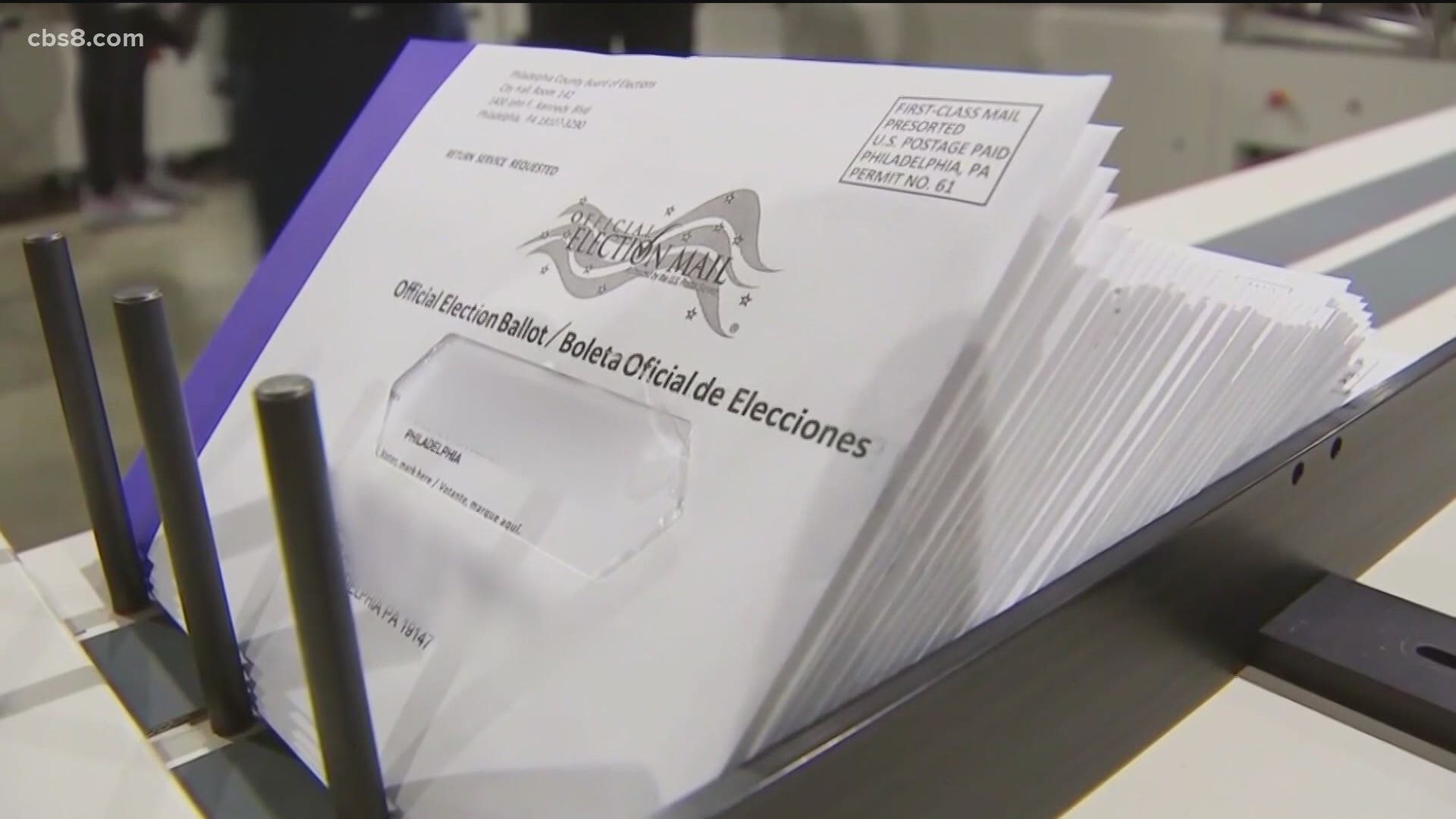SAN DIEGO — President Donald Trump has been threatening legal action for weeks. Wednesday he filed a lawsuit in Michigan, a state where Joe Biden is the projected winner, claiming irregularities in the vote counting process.
He also filed multiple lawsuits in Pennsylvania to try and stop ballots from being counted.
In Michigan, President Trump's team of attorneys allege the campaign did not have "meaningful access" to areas where ballots were being counted and therefore, counting should be halted. Michigan law allows observers from both parties to monitor the vote counting process.
Chaos erupted outside the vote tally room at TCF Center in Detroit after election officials told dozens of challengers that they could not re-enter the room due to it being over-capacity.
"The legal fight the president is waging is being waged on a number of different fronts," said legal analyst Dan Eaton.
Pennsylvania is one of the states that made an exception about allowing mail-in ballots to be counted that arrive up to three days after Election Day --as long as they were postmarked by Election Day.
However, it was the Pennsylvania State Supreme Court that made that exception -- not the legislature.
"When you have courts making exceptions because of pandemic-related issues there is a question about whether or not they are undermining or subverting the power of the legislature to set this process," said Eaton.
Republicans already sued to try to have those votes thrown out. The U.S. Supreme Court declined to hear the case and therefore the lower court's decision stood. However, that was before Justice Amy Coney Barrett was appointed. Justice Barrett has not said if she would recuse herself from a case like this should it be heard by the high court.
Bottom line -- will the courts be deciding this election?
"I think it's a mistake to say the courts would decide who won the election because ultimately the voters decide who wins the election," said Eaton. "The question the courts will have to decide is which voters?"

